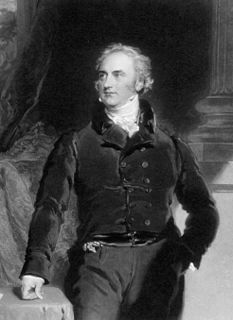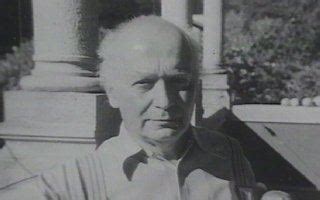A Quote by Charles Darwin
After my return to England it appeared to me that by following the example of Lyell in Geology, and by collecting all facts which bore in any way on the variation of animals and plants under domestication and nature, some light might perhaps be thrown on the whole subject.
Related Quotes
Our alleged facts might be true in all kinds of ways without contradicting any truth already known. I will dwell now on only one possible line of explanation, - not that I see any way of elucidating all the new phenomena I regard as genuine, but because it seems probable I may shed a light on some of those phenomena. All the phenomena of the universe are presumably in some way continuous; and certain facts, plucked as it were from the very heart of nature, are likely to be of use in our gradual discovery of facts which lie deeper still.
Agriculture probably required a far greater discipline than did any form of food collecting. Seeds had to be planted at certain seasons, some protection had to be given to the growing plants and animals, harvests had to be reaped, stored and divided. Thus, we might argue that it was neither leisure time nor a sedentary existence but the more rigorous demands associated with an agricultural way of life that led to great cultural changes.
the only way in which a human being can make some approach to knowing the whole of a subject, is by hearing what can be said about it by persons of every variety of opinion, and studying all modes in which it can be looked at by every character of mind. No wise man ever acquired his wisdom in any mode but this; nor is it in the nature of human intellect to become wise in any other manner.
Many things that human words have upset are set at rest again by the
silence of animals. Animals move through the world like a caravan of
silence. A whole world, that of nature and that of animals, is filled
with silence. Nature and animals seem like protuberances of silence.
The silence of animals and the silence of nature would not be so great
and noble if it were merely a failure of language to materialize.
Silence has been entrusted to the animals and to nature as something
created for its own sake.
Life evolved under conditions of light and darkness, light and then darkness. And so plants and animals developed their own internal clocks so that they would be ready for these changes in light. These are chemical clocks, and they're found in every known being that has two or more cells and in some that only have one cell.
Geology, perhaps more than any other department of natural philosophy, is a science of contemplation. It requires no experience or complicated apparatus, no minute processes upon the unknown processes of matter. It demands only an enquiring mind and senses alive to the facts almost everywhere presented in nature. And as it may be acquired without much difficulty, so it may be improved without much painful exertion.



































